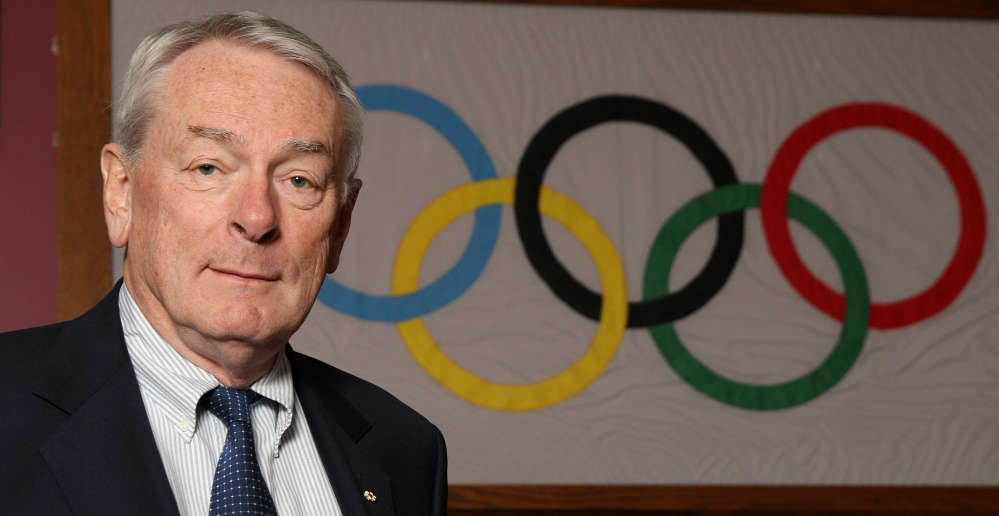LONDON — As the clock ticks down to the opening ceremony in Rio de Janeiro, international Olympic leaders are facing a seminal moment.
With the credibility of the fight against doping on the line and the image of the Olympic movement at stake, the IOC will hold a crucial meeting Sunday to consider whether to ban Russia entirely from the Rio Games because of systematic, state-sponsored cheating.
Short of a blanket ban, the International Olympic Committee could leave it to individual sports federations to decide on a case-by-case basis whether to allow Russian athletes in their events.
The doping crisis represents one of the Olympic movement’s biggest challenges since the boycott era of the 1980s, and how it plays out may well define Thomas Bach’s IOC presidency.
The IOC’s 15-member executive board will meet via teleconference to weigh the unprecedented step of excluding Russia as a whole. Bach and others have spoken of a need to balance “individual justice” versus “collective punishment.”
Time is of the essence, with the games set to open in Rio on Aug. 5.
Russia’s track and field athletes have already been banned by the IAAF, the sport’s governing body, following allegations of state-directed doping – a decision that was upheld Thursday by the Court of Arbitration for Sport.
Calls for a complete ban on Russia have intensified since Monday when Richard McLaren, a Canadian lawyer commissioned by the World Anti-Doping Agency, issued a report accusing Russia’s sports ministry of overseeing a vast doping program of its Olympic athletes.
Bach said the findings showed a “shocking and unprecedented attack on the integrity of sports and on the Olympic Games” and declared the IOC “will not hesitate to take the toughest sanctions available against any individual or organization implicated.”
Former WADA president Dick Pound, a senior IOC member from Canada, accused Bach of dithering and failing to live up to his “zero tolerance” line on doping. He said the IOC will face a backlash if it decides against a full ban.
“I think it will go down very badly,” Pound said. “I think there will be an athletes’ revolt, a public revolt, maybe even the sponsors. You’ve got to take control of it, and show your leadership. The hesitation makes it looks worse and worse.”
A coalition of 14 national anti-doping agencies sent a letter to Bach saying the IOC’s initial response did not meet his pledge of the “toughest sanctions available.” The group called on the IOC to suspend the Russian Olympic Committee and set up a task force that could allow certain Russians to compete under a neutral flag if proven to be clean.
U.S. ROSTER: The U.S. is sending 292 women to the Summer Olympics – the most women who have ever competed at an Olympics for a single country.
The U.S. Olympic Committee officially announced its 555-person team Saturday. Three are going to their sixth Olympics: equestrian Phillip Dutton and shooters Emil Milev and Kim Rhode. There are seven athletes making their fifth Olympics, including Michael Phelps, Bernard Lagat, Kerri Walsh Jennings and Venus Williams.
Dutton is the oldest U.S. Olympian at 52. There are four 16-year-olds: Kanak Jha (tennis), Laurie Hernandez (gymnastics), Sydney McLaughlin (track) and Laura Zeng (rhythmic gymnastics).
Send questions/comments to the editors.



Success. Please wait for the page to reload. If the page does not reload within 5 seconds, please refresh the page.
Enter your email and password to access comments.
Hi, to comment on stories you must . This profile is in addition to your subscription and website login.
Already have a commenting profile? .
Invalid username/password.
Please check your email to confirm and complete your registration.
Only subscribers are eligible to post comments. Please subscribe or login first for digital access. Here’s why.
Use the form below to reset your password. When you've submitted your account email, we will send an email with a reset code.